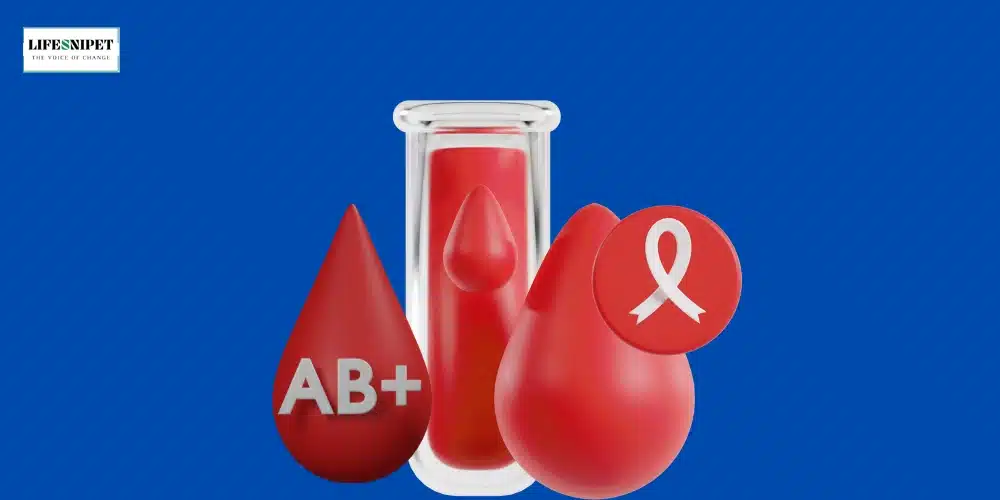As a healthcare professional, I have come to appreciate the crucial role that blood groups play in medical care. For instance, blood transfusions and organ transplantation rely heavily on the compatibility of blood groups. One of the most well-known and significant blood group systems is the ABO blood group system. Understanding the importance of ABO typing is essential for healthcare providers and patients alike.
The presence or absence of specific antigens on the surface of red blood cells determines blood groups. The ABO blood group system categorizes blood into four main types: A, B, AB, and O. Each blood type has a unique combination of antigens and antibodies. For example, a person with blood type A has the A antigen on their red blood cells and antibodies against the B antigen in their plasma.
The importance of blood groups in transfusions
When it comes to blood transfusions, the compatibility of blood groups is crucial to prevent adverse reactions. Transfusing blood that is incompatible with the recipient’s blood group can lead to serious complications, including hemolysis, organ failure, and even death. Therefore, before any blood transfusion, ABO typing is performed to ensure a successful and safe procedure.
Blood type O is considered the universal donor, as it lacks both the A and B antigens. This means that individuals with blood type O can donate blood to any other blood type without triggering an immune response. Conversely, individuals with blood type AB are considered universal recipients, as they can receive blood from any other blood type without adverse reactions. The importance of blood groups in transfusions cannot be overstated, as it is a matter of life and death for many patients.
Understanding the ABO blood group system
The ABO blood group system is determined by genetic factors and is inherited from our parents. The presence or absence of specific genes determines the production of antigens on the surface of red blood cells. The ABO blood group system consists of four main blood types: A, B, AB, and O.
Blood type A individuals have the A antigen on their red blood cells and antibodies against the B antigen in their plasma. Blood type B individuals have the B antigen on their red blood cells and antibodies against the A antigen in their plasma. Blood type AB individuals have both A and B antigens on their red blood cells and no antibodies against either A or B antigens. Finally, blood type O individuals have no antigens on their red blood cells but have antibodies against both A and B antigens in their plasma.
ABO Blood Group typing process and its significance
ABO typing is a simple blood test that determines an individual’s blood type. The process involves mixing a small amount of the patient’s blood with known antibodies against the A and B antigens. The blood type can be identified by observing the agglutination (clumping) of red blood cells.
Knowing an individual’s blood type through ABO typing is crucial for a variety of reasons. It helps prevent transfusion reactions by ensuring blood compatibility, aids in the selection of appropriate blood products during surgeries and assists in identifying potential organ transplant recipients and donors. ABO typing is an integral part of healthcare, allowing for safe and effective medical interventions.
Blood group compatibility for transfusions
Blood group compatibility is a vital consideration for transfusions. The ABO blood group system provides a framework for determining which blood types are compatible with each other. Individuals with blood type A can receive blood from donors with blood type A or O. Similarly, individuals with blood type B can receive blood from donors with blood type B or O. Blood type AB individuals can receive blood from any blood type, making them universal recipients. Lastly, individuals with blood type O can only receive blood from donors with blood type O, making them universal donors.
In emergencies where the patient’s blood type is unknown, blood type O negative is often used as a universal donor, as it can be safely transfused to individuals with any blood type. However, it is important to note that this is a temporary measure until the patient’s blood type can be determined through ABO typing.
Common misconceptions about blood groups
There are various misconceptions surrounding blood groups, which can lead to misunderstandings and misinformation. One common misconception is that individuals with blood type O negative are superior or healthier than others. In reality, blood type has no direct correlation with a person’s overall health or superiority.
Another common misconception is that blood type determines personality traits. While some studies have suggested potential links between blood type and certain personality characteristics, the scientific evidence supporting these claims is limited and inconclusive. It is important to rely on verified scientific information and not make assumptions based on blood type alone.
The role of ABO Blood Group typing in organ transplantation
ABO typing plays a critical role in organ transplantation. Matching the donor and recipient’s blood type is essential to minimize organ rejection risk. In most cases, a successful organ transplant requires an ABO-compatible match. However, in certain situations, when no identical ABO match is available, special procedures and treatments can be used to overcome the compatibility barrier.
For example, in cases where an ABO-incompatible kidney transplant is necessary, various protocols can be followed to reduce the risk of rejection. These protocols involve desensitization techniques, plasmapheresis, and the administration of immunosuppressive medications. ABO typing is therefore crucial to ensure the best possible outcomes for patients in need of organ transplantation.
Other blood group systems and their importance
In addition to the ABO blood group system, several other blood group systems play a significant role in healthcare. These include the Rh system, the Kell system, the Duffy system, and many more. Each blood group system consists of multiple antigens and antibodies important for transfusions, organ transplantation, and prenatal care.
The Rh system, for instance, determines the presence or absence of the Rh antigen in red blood cells. Rh-positive individuals have the Rh antigen, while Rh-negative individuals do not. The Rh system is especially important during pregnancy, as Rh incompatibility between the mother and fetus can lead to complications such as hemolytic disease in the newborn.
The impact of blood Groups on pregnancy and childbirth
Blood groups also play a crucial role in pregnancy and childbirth. During pregnancy, if the mother’s blood type is Rh-negative and the fetus is Rh-positive, there is a risk of Rh incompatibility. This occurs when the mother’s immune system produces antibodies against the Rh antigen present in the fetus’ red blood cells. If left untreated, Rh incompatibility can lead to severe complications, including anemia, jaundice, and even fetal death.
To prevent these complications, Rh-negative mothers receive a medication called Rh immunoglobulin (RhIg) during pregnancy and after childbirth. RhIg prevents the mother’s immune system from producing antibodies against the Rh antigen, ensuring the health and well-being of both the mother and the baby.
Conclusion: The significance of ABO Blood Group typing in healthcare
In conclusion, understanding the importance of ABO typing is essential in healthcare. The ABO blood group system provides crucial information for blood transfusions, organ transplantation, and prenatal care. ABO typing allows healthcare providers to ensure compatibility and safety during medical procedures, preventing complications and saving lives.
By recognizing the significance of blood groups and ABO typing, healthcare professionals can provide the best possible care for their patients. It is important to dispel misconceptions and rely on evidence-based information when discussing blood groups. The field of blood group typing continues to evolve, with ongoing research and advancements leading to improved healthcare outcomes.
FAQs
Q: Can blood type change over time?
A: No, an individual’s blood type remains the same throughout their life. However, advances in medical science have allowed for procedures such as bone marrow transplantation, which can introduce new blood cells with a different blood type.
Q: Can two parents with blood type O have a child with blood type A?
A: Yes, two parents with blood type O can have a child with blood type A. This occurs when both parents are carriers of the A allele and pass it on to their child.
Q: Are there any dietary recommendations based on blood type?
A: While some diets claim to be tailored to specific blood types, there is no scientific evidence supporting the effectiveness of such diets. It is always best to consult with a healthcare professional or registered dietitian for personalized dietary advice.
Q: Are blood types unique to humans?
A: No, blood types exist in other animals as well. However, the ABO blood group system is unique to humans and some primates.
Q: Can ABO typing be used for forensic purposes?
A: Yes, ABO typing can be used for forensic purposes, such as establishing the presence or absence of blood at a crime scene. However, it is limited in its ability to provide conclusive evidence in identifying individuals. DNA analysis is typically used for more accurate identification in forensic investigations.
Q: What is the rarest blood type?
A: The rarest blood type is AB negative, which is estimated to occur in less than 1% of the population.

Welcome to LifeSnipet! At LifeSnipet, we’re your ultimate source for the latest health updates. Specializing in health and fitness-related diseases, we delve deep into Ayurvedic techniques, providing you with a comprehensive understanding of well-being. Explore our real-time updates, detailed articles, and ancient Ayurvedic wisdom for a holistic approach to health. Embark on a journey to a healthier, vibrant life with LifeSnipet – where your well-being is our priority!











